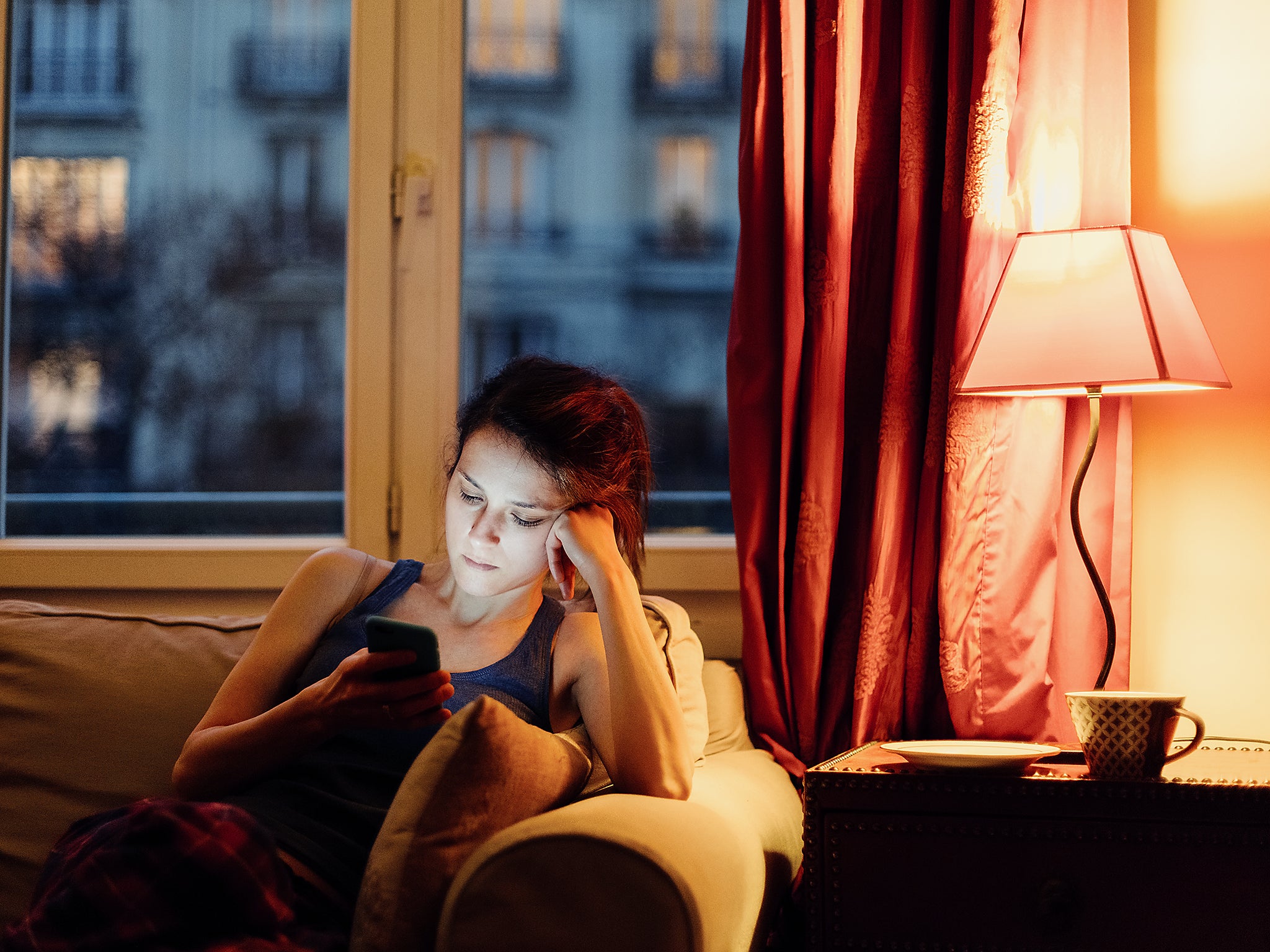People who use social media a lot are isolated, study says
The longer you spend on social networks, the lonelier you're likely to be

Your support helps us to tell the story
From reproductive rights to climate change to Big Tech, The Independent is on the ground when the story is developing. Whether it's investigating the financials of Elon Musk's pro-Trump PAC or producing our latest documentary, 'The A Word', which shines a light on the American women fighting for reproductive rights, we know how important it is to parse out the facts from the messaging.
At such a critical moment in US history, we need reporters on the ground. Your donation allows us to keep sending journalists to speak to both sides of the story.
The Independent is trusted by Americans across the entire political spectrum. And unlike many other quality news outlets, we choose not to lock Americans out of our reporting and analysis with paywalls. We believe quality journalism should be available to everyone, paid for by those who can afford it.
Your support makes all the difference.You might think that social media allows us to be connected to our loved ones 24/7, but a new study has discovered that it’s actually making us feel lonelier.
The report suggests that if you spend over two hours a day on social networks, your chances of feeling socially isolated are twice as high.
The study was carried out by the University of Pittsburgh and saw researchers questioning 1,787 adults aged between 19 and 32 about their use of the 11 most popular social media sites - Facebook, YouTube, Twitter, Google Plus, Instagram, Snapchat, Reddit, Tumblr, Pinterest, Vine and LinkedIn - at the time the research was conducted in 2014.
They found that people who visit social networks over 58 times a week are three times more likely to feel lonely than those who use the sites under nine times.
It has long been suggested that social media is contributing to the rise in FOMO (fear of missing out), but this study suggests the problem may be more serious.
However it’s not clear whether social media causes loneliness, or whether it’s just that already lonely people are more likely to spend longer on social networks.
“We do not yet know which came first - the social media use or the perceived social isolation,” co-author Elizabeth Miller, professor of paediatrics at the University of Pittsburgh, said.
“It's possible that young adults who initially felt socially isolated turned to social media. Or it could be that their increased use of social media somehow led to feeling isolated from the real world.”
The scientists allowed for demographic differences and maintained that there’s a link between social media usage and loneliness.
However as well as FOMO from events you didn’t attend, the study suggests that the longer someone spends on social media, the less time they have for real life social interactions.
As suicides and mental health issues amongst students and young adults are on the rise, the role of social media is being increasingly scrutinised.
“We are inherently social creatures, but modern life tends to compartmentalise us instead of bringing us together,” Professor Brian Primack, from the University of Pittsburgh School of Medicine, said.
“While it may seem that social media presents opportunities to fill that social void, I think this study suggests that it may not be the solution people were hoping for.”
Join our commenting forum
Join thought-provoking conversations, follow other Independent readers and see their replies
Comments